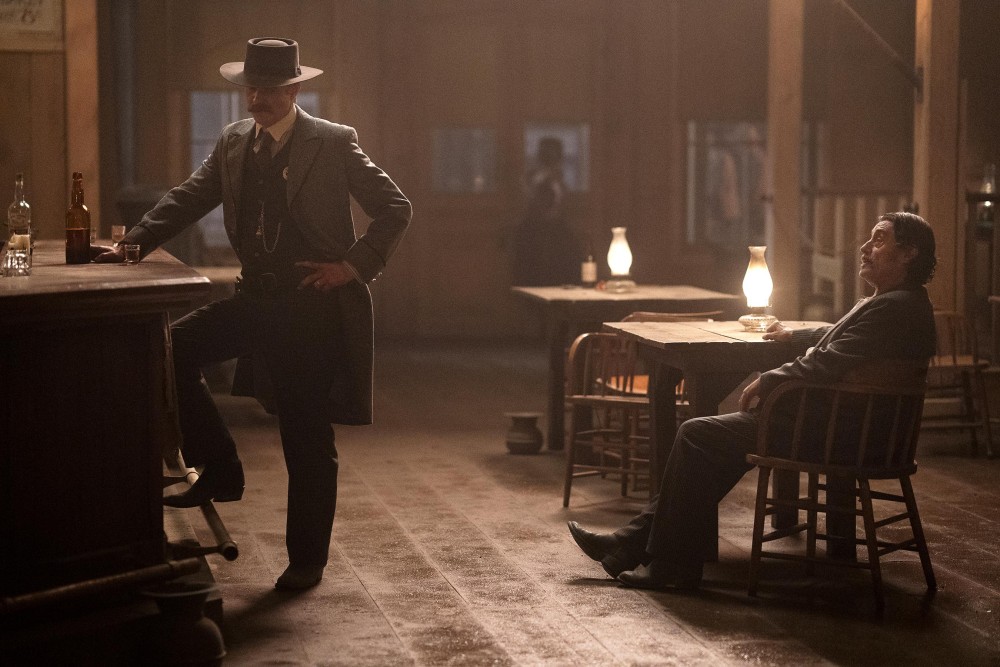In the Deadwood revival, the people must live on
At least the ones who survived the original series

After a 13-year hiatus, the HBO show Deadwood (created by David Milch) received a long-awaited coda in the form of a two-hour HBO movie released earlier this summer. Though the movie does not have the same depth as the three-season series (2004–2006), it offers some new insights on the motley band of humans living in a remote outpost of the Dakota Territory—more camp than town—who are trying to do right by each other in the face of monopoly capitalism and a political system ruled by the wealthy.
I have watched the entire series three times, and I would watch it again just for the pleasures of its language. Milch invented an archaic prose style that earned him comparisons to Dickens and Shakespeare. The use of blank verse in heightened moments (“No law at all in Deadwood? Is that true?”) and the mix of stylized, often inverted, syntax with crude content (“It means there’s a horse for you outside you want to get on before somebody murders you who gives a fuck about right and wrong, or I do”) makes the show ear candy for literary nerds.
But it is not just the dialogue that stands the test of time. While many other highly acclaimed shows in the early 2000s (The Sopranos, Mad Men, Breaking Bad) were tracing the rotten foundations of modern society, Deadwood was exploring what makes people join together to build a society in the first place. It was hopeful, in its own bleak way.





